It was hard not to notice the number of recent books with birds on the cover. So I made a brief little survey of book covers just for fun.*
Pause over the cover mage to see title and author; click for a link to our Reading Guide or Amazon (if we don't have a guide).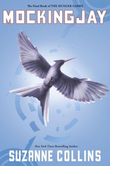
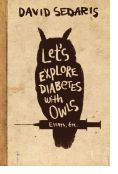
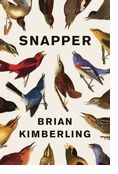
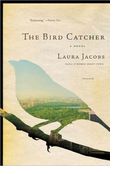
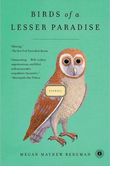
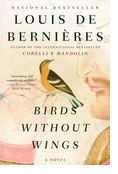
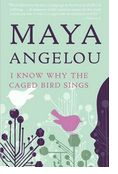
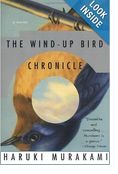

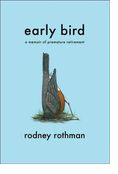
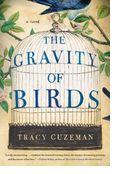
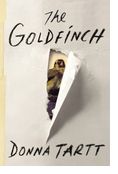
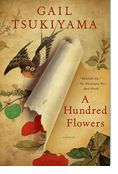

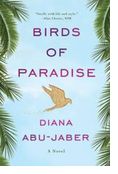
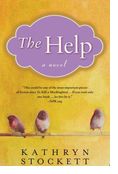
 Feeling guilty about all the reading you do ... and all the chores you DON'T do? Relax. It turns out you're a finer person for keeping your nose in a book. So keep reading.
Feeling guilty about all the reading you do ... and all the chores you DON'T do? Relax. It turns out you're a finer person for keeping your nose in a book. So keep reading.
A new study shows that books enable us live up to our better selves. The researchers, Emanuele Castano and David Comer Kidd, found that people gain empathy and social intelligence after reading certain kinds of books.
What kind of books? Well, not the blockbuster kind. So nix the heart-thomping thrillers or the steamy romances. The study refers specifically to "literary fiction"—well-developed characters and storylines that explore complicated human relationships—the very kind of books we read in book clubs.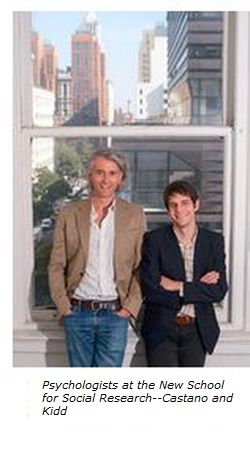 One of the books used in the study was Round House by Louise Erdrich, which (at the time of this writing) happens to be the 3rd most requested book on LitLovers. (See our Popular Books page.)
One of the books used in the study was Round House by Louise Erdrich, which (at the time of this writing) happens to be the 3rd most requested book on LitLovers. (See our Popular Books page.)
There's a reason why books like Round House matter. According to the New York Timesarticle:
[L]iterary fiction leaves more to the imagination, encouraging readers to make inferences about characters and be sensitive to emotional nuance and complexity.
You can read the full story in the NY Times HERE. It's fascinating and well worth the time.
For Book Clubs: Consider taking time during one of your meetings to talk about the books that have altered the way you perceive people and the world around you. Which books have enlarged your ideas about life and your role in it?
 Mention worthy: Publishers Weekly (PW) posed a question to Claire Messud in a recent interview that roused a remarkable response. So remarkable, it's worth reporting on here.
Mention worthy: Publishers Weekly (PW) posed a question to Claire Messud in a recent interview that roused a remarkable response. So remarkable, it's worth reporting on here.
The question concerned the heroine in Messud's new book, The Woman Upstairs.
PW said: "I wouldn’t want to be friends with Nora, would you? Her outlook is almost unbearably grim."
Messud Responds . . .
For heaven’s sake, what kind of question is that? Would you want to be friends with Humbert Humbert?
Would you want to be friends with Mickey Sabbath?
...Saleem Sinai?
...Hamlet?
...Krapp?
...Oedipus?
...Oscar Wao?
...Antigone?
...Raskolnikov?
...Any of the characters in The Corrections?
...Any of the characters in Infinite Jest?
...Any of the characters in anything Pynchon has ever written?
...Or Martin Amis?
...Or Orhan Pamuk?
...Or Alice Munro, for that matter?"
If you’re reading to find friends, you’re in deep trouble. We read to find life, in all its possibilities. The relevant question isn’t “is this a potential friend for me?” but “is this character alive?"
Don't Mess with Messud!—was how PW responded to Messud's response. It's comment had clearly "rankled" the author, PW admitted, BUT...it gave Messud a chance to "show her chops. We're so glad we had that conversation," ended PW graciously.
Messud is the author of the 2006 The Emperor's Children (see reading guide here; see LitLovers review here), as well as this most recent 2013 novel, The Woman Upstairs.
For book clubs to consider:
1. Do we read to find friends?
2. How important is it to like the characters in the books?
3. Do we feel let down when we dislike them?
4. Talk about some of the books you've read and whether or not your enjoyment of them—or disappointment in them—had to do with the likability of the characters.
 Book marketers have given in...or smartened up. Either way, they've taken a page from the movie folks and now create film trailers to promote new books. Some of the trailers are pretty ho-hum. But we've found a couple that are ho-ho-hilarious. Really funny.
Book marketers have given in...or smartened up. Either way, they've taken a page from the movie folks and now create film trailers to promote new books. Some of the trailers are pretty ho-hum. But we've found a couple that are ho-ho-hilarious. Really funny.
The first is Teddy Wayne's The Love Song of Jonny Valentine. Wayne is a wonderful comic writer, a terrific satirist, who in this book sets his sights on the commercialization of an 11-year-old rock star sensation, a la Justin Bieber. A child prodigy, Jonny is there for the taking: his life is commodified by just about everyone, including his own mother.
Here's the Video Trailer.
Here's our Reading Guide.
Second up, is John Kenney's novel Truth in Advertising. Again, like Teddy Wayne's, this is a comic novel: a sardonic take on the advertising world of New York. Finbar Dolan, the book's hero (not a River Elf), carries around a lot of angst—about the job, his family, and his love life. He sweats the big stuff.
Here's the Video Trailer.
Here's our Reading Guide.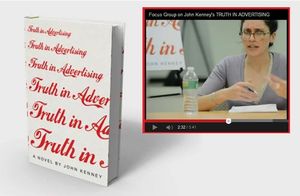
Have fun with these. The more you watch them, the funnier they are. If your book's trailer is any good, play it at the book club meeting—it's a great way to break off socializing and signal the beginning of the discussion.
 I've written twice* before about what's to become of libraries in the digital age. A widely emailed New York Times article should give heart to all of us who have worried about their fate. Here's the gist...
I've written twice* before about what's to become of libraries in the digital age. A widely emailed New York Times article should give heart to all of us who have worried about their fate. Here's the gist...A Pew Survey found recently that the percentage of those who believe book borrowing is a "very important" library service (80%) is about the same as those who believe computer access is a "very important" library service (77%). As it happens, libraries have been meeting the challenge of the digital age all along:
In the past generation, public libraries have reinvented themselves to become technology hubs in order to help their communities access information in all its new form.It's possible to have too much information. Back in the dark ages, when the web was in its infancy, a friend of mine quipped that it needed a good librarian to get the stuff organized. This was a few years before Google. Today, the web clocks in at nearly 15 billion web pages, and it's still growing at a mind-boggling rate. Google or no Google, we have digital overload.
—Kathryn Zickuhr, Pew Research Center
All of which makes an "information manager" more important than ever—specialists who know how to search, locate, categorize, and vet information. And guess who does that really, really well? Librarians.
What's more, librarians share their skills. Every major library now offers its patrons—not just access to digital equipment—but courses in how to use it...and how to maneuver the vast information galaxy.
So 100 years from now, even if we find their shelves bereft of the printed book, libraries and librarians will be more important than ever—as communal centers of knowledge. We'll still need them—so we better damn well make sure they're around! A warning to us all: we need to keep a close watch on our municipal budgets.
* See Whither Go Libraries in the Digital Age—Part 1 and Part 2.
